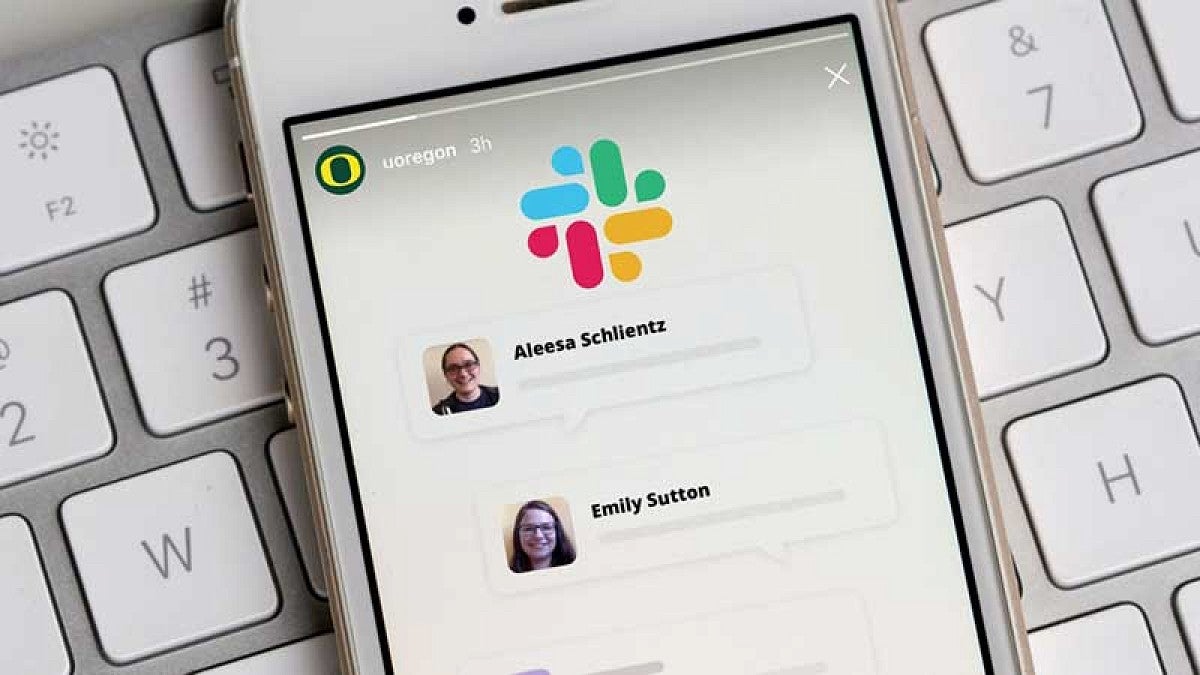In early March, as the UO made the transition to remote education, Aleesa Schlientz had the realization that her network of friends and fellow graduate students was shrinking and the daily structure of her days was disappearing.
Instead of spending long hours in the lab, she was now confined to her west Eugene apartment, where she lives alone with her two cats, Bronn and Cara.
“The feeling of being in a lab environment and having other people around and having that feeling that there are people who care about you was very much missing,” said Schlientz, a senior graduate student in UO biologist Bruce Bowerman’s lab. “Everybody was trying to pick up the pieces and figure out where to go with everything.”
Schlientz and fellow graduate student Emily Sutton felt particularly concerned for their more junior peers and the sense of isolation they must be feeling. Together, they jumped into action to help their graduate student community in the Institute of Molecular Biology.
They created a special Slack channel where students could ask questions, vent their frustrations, and seek the advice and support they needed to help navigate their way through the intricacies of being a graduate student during a challenging time.
Even in the absence of a global pandemic, life as a first-year graduate student in the sciences can be dizzying.
“It’s typically a really exciting, tumultuous time, and to have (the coronavirus crisis) thrown in, I think could be quite challenging,” said Victoria DeRose, a professor in the Department of Chemistry and Biochemistry. “They have come to a new place, they are thrown in with a number of incredibly talented students from all over, they are doing research in new laboratories, often teaching as well, making decisions about what kind of research they’d like to do for their career.”
Student mentorship has long been a key part of the graduate student experience, but has become even more so this term, said Sutton, a senior in DeRose’s lab pursuing a doctorate in molecular biology.
“It’s just so important, something I value, to create a support system with my fellow students,” Sutton said. “People are dealing with a lot of open questions about how this is all going to play out for them. We can help each other navigate the different things that come up.”
The virtual hub has been a place where several dozen graduate students can find guidance on remote teaching, data analysis, preparing for a thesis committee meeting and other pressing subjects. Senior grad students pool their collective knowledge and have fielded questions on everything from using Zoom to choosing a lab assignment.
In addition to serving up useful information, the online network has been a source of support for an already isolated group, DeRose said.
“I’m really glad that these (online conversations) are happening,” she said. “We interact with our students one-on-one as their advisors and principal investigators, and our role is to create community within our laboratories. But it’s also really important that different groups create their own communities.”
Schlientz points to a virtual happy hour that Sutton started hosting on Zoom, which has since become a weekly occurrence. Every Friday, students meet up with the beverage of their choice in a less academic setting.
“The happy hour is a way to check in with each other and see how people are doing in a more informal environment,” Sutton said. “Since we are all working from home, our normal opportunities to socialize outside of our immediate lab groups have gone away. The idea was to create a space where grad students in our institute can decompress together at the end of the week if they feel like dropping in.”
One area where this virtual community has been particularly helpful has been in choosing lab assignments. One of the most difficult decisions for first-year grad students in the biology and chemistry/biochemistry departments is in choosing which lab to attach themselves.
After rotating through three residencies over three terms, they match up with a lab that’s the best fit for them. In the era of the coronavirus, lab rotations have become primarily virtual and the decision has become even more confounding.
“It’s a hard call because ideally once you choose your lab you’re there for five years. It’s got to be a fit for everyone, for the student and for the lab, and I can’t imagine making that decision is easy based on a virtual residency,” said Annie Zemper, a biology professor in the Institute of Molecular Biology. “To have a virtual community that’s supported by senior (students) is something I would imagine is hugely helpful. One grad student described their help as ‘immeasurable during this hard time.’”
Zemper points out that Sutton and Schlientz are dealing with their own challenges as they plan for graduation and seek to secure postdoctoral appointments during a time of economic uncertainty. Schlientz has a job lined up as a postdoctoral fellow at the University of California San Diego and Sutton is still pursuing an academic position.
“On top of all they are dealing with, they have been doubling their efforts to help the students below them,” Zemper said. “It really is an example of somebody climbing a ladder and looking back, and trying to pull the person up from behind. I could not be more proud of these students. The show must go on, and they are helping this effort tremendously.”


